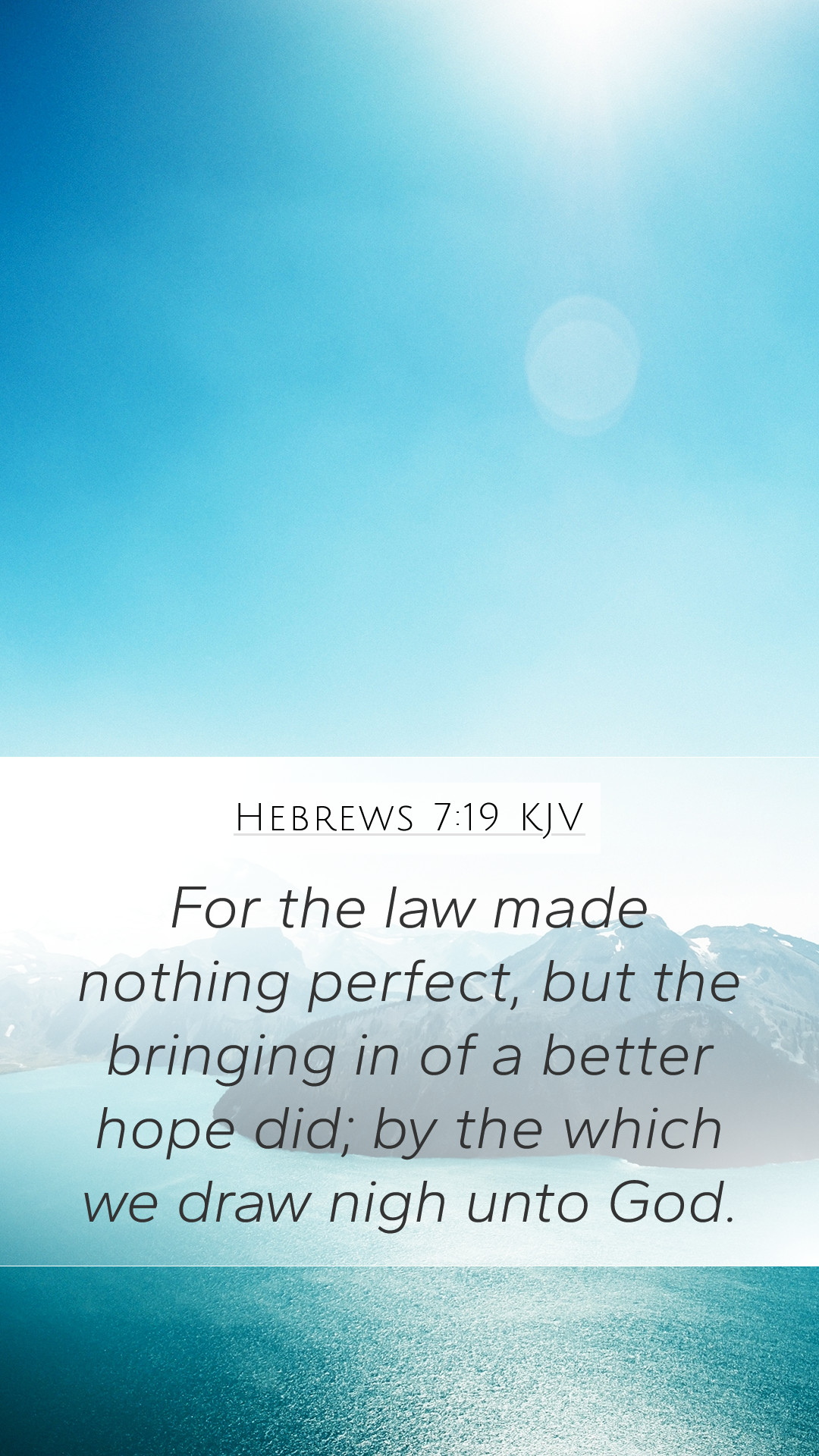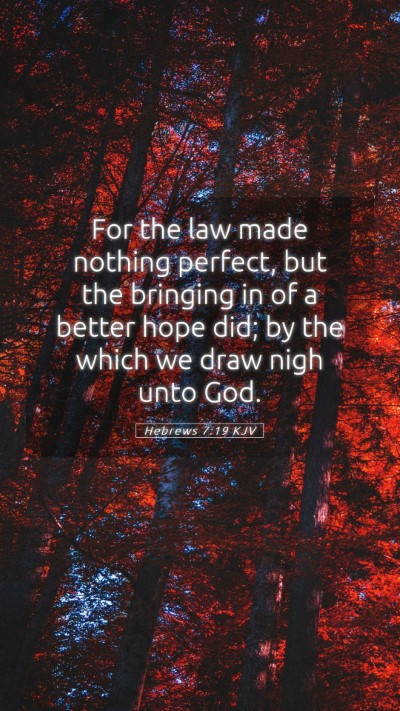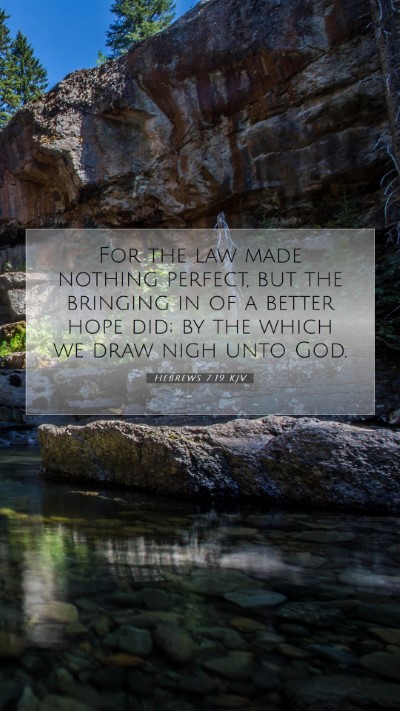Understanding Hebrews 7:19
The verse Hebrews 7:19 states: "For the law made nothing perfect, but the bringing in of a better hope did; by the which we draw nigh unto God." This verse serves as a pivotal point in the Apostle Paul's epistle to the Hebrews, illustrating the transition from the old covenant of the law to the new covenant of grace found in Jesus Christ. This commentary will explore the significance of this verse, including insights from public domain sources like Matthew Henry, Albert Barnes, and Adam Clarke, offering a rich understanding of its meaning and implications.
Key Themes of Hebrews 7:19
- Inadequacy of the Law: The law, while good and holy, could not achieve perfection for humanity. Matthew Henry emphasizes that the law was a tutor, guiding people towards the recognition of their need for a savior.
- The Better Hope: The “better hope” refers to the hope that comes through faith in Jesus Christ. Albert Barnes notes that this hope is rooted in the work of Christ, which brings about reconciliation with God.
- Drawing Near to God: The verse concludes with the profound promise that believers can draw near to God. Adam Clarke highlights that this access to God is made possible through Jesus, marking a significant shift from the old covenant.
Commentary Insights
Matthew Henry's Commentary: Henry articulates that while the law could not make anything perfect, it pointed to a greater reality—the coming of Christ. The imperfection of the law illustrates humanity's need for a savior, which is fulfilled in Jesus, who brings perfection and complete salvation.
Albert Barnes' Commentary: Barnes further expounds that the 'better hope' is the hope based on the atoning work of Christ. He contrasts the limitations of the Mosaic Law with the grace offered through faith, leading believers to a closer relationship with God.
Adam Clarke's Commentary: Clarke emphasizes that the ability to draw near to God is a foundational privilege of the new covenant. He stresses that this is not merely an invitation but a reality established through Christ’s sacrifice, enabling believers to approach God with confidence.
Application to Daily Life
Understanding Hebrews 7:19 can profoundly impact how believers approach God and their faith journey. This verse reaffirms that through Christ, we have direct access to God and a hope that transcends the limitations of the law. This realization fosters a deeper commitment to a personal relationship with Christ and encourages believers to rely on His grace rather than their works.
Cross References
- Hebrews 4:16: “Let us therefore come boldly unto the throne of grace, that we may obtain mercy, and find grace to help in time of need.”
- Romans 5:1-2: “Therefore being justified by faith, we have peace with God through our Lord Jesus Christ: By whom also we have access by faith into this grace wherein we stand, and rejoice in hope of the glory of God.”
- Galatians 3:24-25: “Wherefore the law was our schoolmaster to bring us unto Christ, that we might be justified by faith. But after that faith is come, we are no longer under a schoolmaster.”
Conclusion
Hebrews 7:19 underscores the transition from the old covenant to the new, highlighting the inadequacies of the law in achieving perfection and the wonderful hope found in Jesus Christ. This verse serves as a reminder of the grace that believers have received and the direct access to God that is now available. For those studying the Bible, this verse provides a rich foundation for understanding Scripture and deepening one's faith.
As we explore the meaning of Bible verses like Hebrews 7:19, we guide ourselves through the depths of Bible study insights and understanding Scripture, fostering a profound appreciation for God’s word and its applications in our lives.


